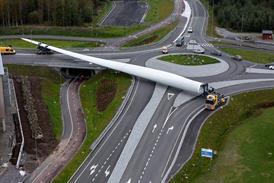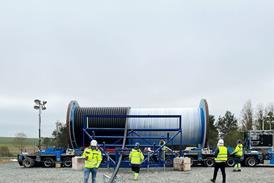April 16 - A new survey conducted by conducted by BDP's Centrx supply chain consulting unit; Adler Research of Bethlehem, USA; King's Road Consulting, USA; and Rubicon Consulting Pte Ltd, Singapore, indicates that 84 percent of manufacturers' supply chain
"With supply chain professionals on the front lines of international trade experiencing the impact of the global recession and growing protectionism, the timing was right to learn how they are aligning their priorities to manage the crisis," said Richard J. Bolte Jr., president and chief executive officer of the logistics and transportation company BDP International, which is the parent company of BDP Project Logistics.
"The fact that 17 G20 members and other countries have implemented nearly 50 measures restricting trade since last November has dramatic implications for global supply chains," Mr Bolte said. "We wanted to get a better understanding of what the implications are for our customers and others, and how they may play out in the coming years."
Among the other findings:
• 60.3 percent agreed a rise in protectionism would cause a collapse of globalisation.
• 20.7 percent said it would result in a significant reduction in exports and deeper slowdown in business.
• 17.2 percent, primarily North American respondents, see protectionism contributing to an increase in the cost of materials sourcing.
• 47.3 percent are placing greater emphasis on near-sourcing to reduce supply chain costs.
Respondents' biggest near-term priority with regard to sourcing, logistics and supply chain practices was cost-based selection of transportation modes among rail, barge and truck for domestic transport, and ocean and air carriers for global transport (81 percent).
Renegotiation of transportation contracts, signed as recently as several months ago and no longer reflective of current supply/demand conditions, was also a near-term priority (57 percent) for the executives who participated.
In both near and long-term priorities, more than 60 percent of respondents said their companies are placing greater emphasis on supply chain visibility, indicative of their need to further optimise these networks to reduce spend, and gain greater control over their transportation and logistics activities.
















